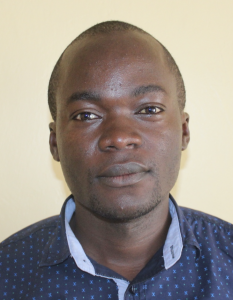Protecting the Mukhonje Spring would help bring harmony to the Malava Community and its 168 residents. Due to its current state of disrepair, the water pressure is slow, creating long lines and quarrels. Without stairs to easily access the drawing point, people struggle to access sufficient water daily.

Field Officer Victor Musemi painted a picture of the spring's condition.
"The spring is located [on] a farm where human activities are done. The structure of the water source is completely damaged, [the] stone pitching [is] missing, wing walls are no more, no staircase to access water, and the collection area is completely removed. The area around the spring box has been destroyed; all waste materials are directly collected at the water source."

This community has worked very hard to try and protect its spring to no avail. They have put their precious income towards materials to attempt to fix it, but unfortunately, they didn't hold up without the expertise required for this type of spring protection. They desire to construct latrines to serve the community, but that isn't possible without access to water.
58-year-old Alice Mausi is a village elder, a role that comes with crucial responsibilities that keep the community functioning.

Alice.
She shared how the water crisis is affecting her.
"Quarreling has really brought up many problems with my neighbors; it has made us hate each other while fetching water."
The community's unrest is heightened because people must collect water so many times a day. Alice said she collects water up to seven times a day. They aren't just waiting in line once a day; they experience the frustration of waiting seven times a day. That's time that could be spent contributing to critical things like earning a livelihood. It's no wonder they are so frustrated!

Alice has a lot to do. She is responsible for caring for her community and providing for her family's needs.
When asked if she was concerned about safety at the waterpoint, she said, "This, to me, is to ensure that no more damage or injuries can be experienced at the water source, and I will be confident to allow children to collect water."
Protecting the community spring will mean a faster and safer experience for Alice and the rest of the Malava Community.

Alice storing water.
"The new waterpoint will ensure harmony prevails at the water source and even with the surrounding neighborhood. People will be able to fetch water right on time without delay, and also, no injuries will occur once again," she added.
We asked Alice what she would do if she didn't have to spend so much time fetching water every day: "Because I have a role to play as a leader in a community, I will ensure that I do the task and deliver on time before proceeding to other activities like plowing [the] farm and selling vegetables to community members."
Steps Toward a Solution
Our technical experts worked with the local community to identify the most effective solution to their water crisis. They decided to safeguard the existing flowing spring.
Spring Protection
Springs are natural water sources that originate from deep underground. As water travels through various layers of the earth, it undergoes a natural filtration process, making it cleaner and safer to drink. To protect these spring sources from contamination, we construct a waterproof cement structure around layers of clay, stone, and soil. This design channels the spring water through a discharge pipe, facilitating easier, faster, and cleaner water collection.
Chlorine Dispenser
As an extra measure towards water quality safety, uniquely engineered chlorine dispensers are installed at all of our spring protection projects so community members can treat their water with pre-measured doses of chlorine. The chlorine treats any residual contamination and stays active for two to three days, ensuring water stays safe to use even when stored at home. Chlorine delivery and maintenance of the dispensers are part of our ongoing community support.
Community Education & Ownership
Hygiene and sanitation training are integral to our water projects. Training is tailored to each community's specific needs and includes key topics such as proper water handling, improved hygiene practices, disease transmission prevention, and care of the new water point. Safe water and improved hygiene habits foster a healthier future for everyone in the community. Encouraged and supported by the guidance of our team, a water user committee representative of the community's diverse members assumes responsibility for maintaining the water point, often gathering fees to ensure its upkeep.

 Protected Spring
Protected Spring
 Rehabilitation Project
Rehabilitation Project


















